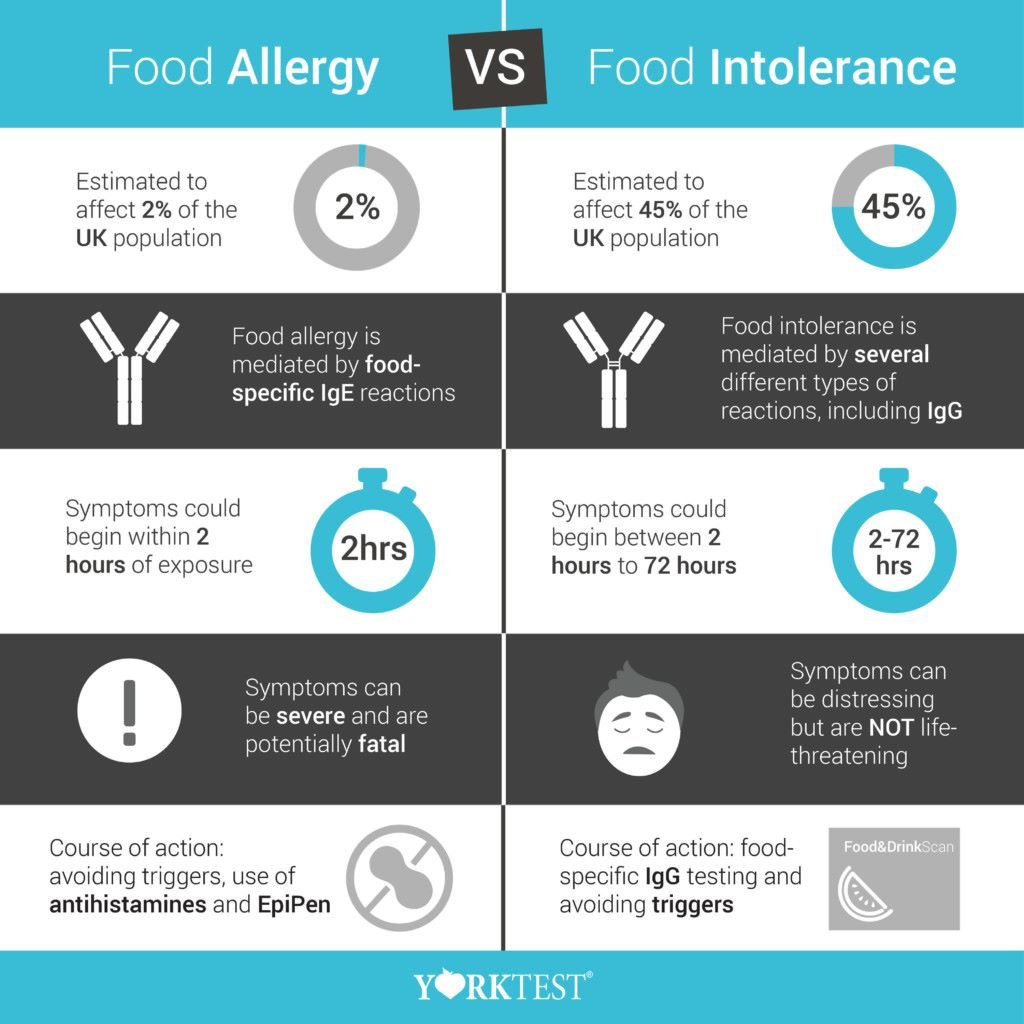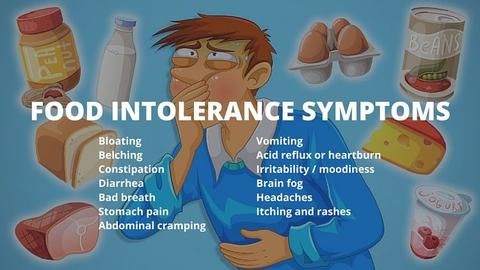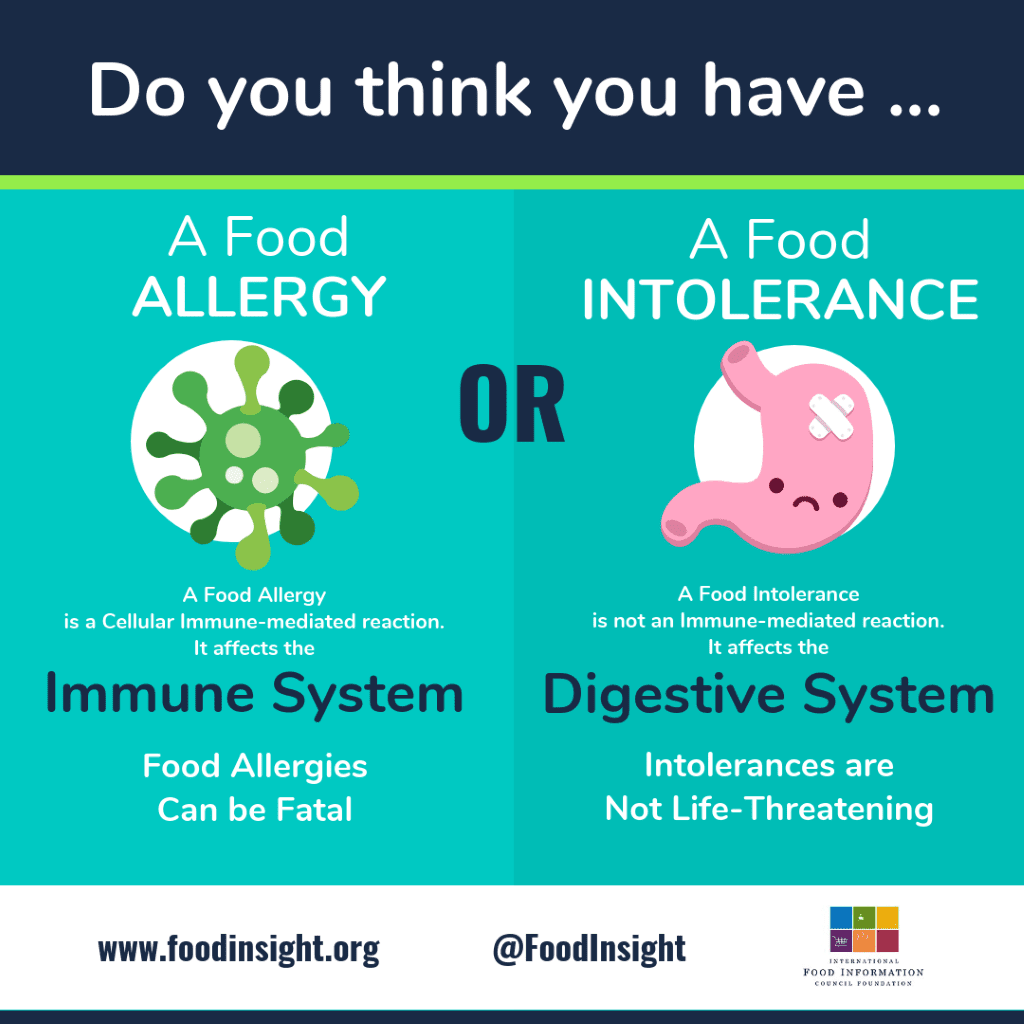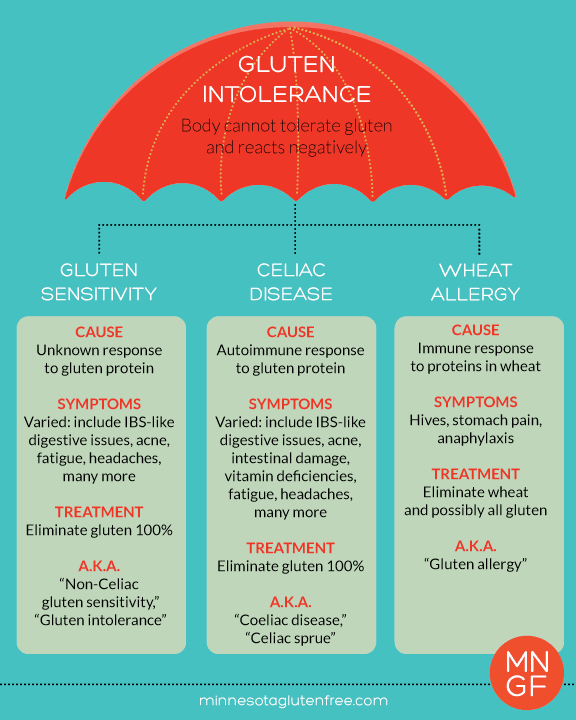What is the difference between food allergies and food intolerances or sensitivity?
Food sensitivities and intolerances are more common than food allergies, according to the British Allergy Foundation. Neither involves the immune system. A food triggers an intolerance in your digestive tract. This is where your body can’t properly break it down, or your body reacts to a food you’re sensitive to. For example, lactose intolerance is when your body can’t break down lactose, a sugar found in dairy products. Food intolerances often are dose related; people with food intolerance may not have symptoms unless they eat a large portion of the food or eat the food frequently. You may be sensitive or intolerant to a food for a few reasons. These include:
- not having the right enzymes you need to digest a certain food
- reactions to food additives or preservatives like sulfites, MSG, or artificial colors
- pharmacological factors, like sensitivity to caffeine or other chemicals
- sensitivity to the sugars naturally found in certain foods like onions, broccoli, or Brussels sprouts

Symptoms of food sensitivity vary, but the symptoms of intolerance are all digestive-related and can begin between 2 and 72 hours after interacting with the food. These can include:
- gas and bloating
- diarrhea
- constipation
- cramping
- nausea

On the other hand, a food allergy involves your immune system. This is your body’s defense against invaders like bacteria, fungus, or the common cold virus. You have a food allergy when your immune system identifies a protein in what you eat as an invader, and reacts by producing antibodies to fight it.
A food allergy is an immune-mediated reaction to the food. The most common is an immunoglobulin E (IgE)-mediated reaction. IgEs are allergic antibodies. They cause an immediate reaction when chemicals, like histamine from mast cells, are released. Food allergies can be fatal, unlike a food intolerance or sensitivity. In extreme cases, ingesting or even touching a small amount of the allergen can cause a severe reaction.
Symptoms of food allergy include:
- skin reactions, like hives, swelling, and itching
- anaphylaxis, including difficulty breathing, wheezing, dizziness, and death
- digestive symptoms

Eight foods account for 90 percent of allergic reactions: milk, eggs, fish, shellfish, peanuts, tree nuts, wheat, and soybeans. People with food allergies are advised to strictly avoid the food they are allergic to (even in small quantities) and in severe cases, may even carry an EpiPen for emergencies.
There are also non-IGE mediated food allergies. These reactions occur when other parts of the immune system are activated apart from IGE antibodies.The symptoms of non-IGE reactions are typically delayed, and occur primarily in the gastrointestinal tract. They include vomiting, diarrhea, or bloating. Less is known about this particular type of reaction, and in general this type of response is not life-threatening.

What should you do if you think you have a food allergy or intolerance?
The first step you should take is speaking to your GP. If the GP thinks that the symptoms you mention are more likely to be symptoms of a food allergy, they will refer you to a specialist. If, on the other hand, it seems more likely to be a food intolerance, other courses of action can occur. You may be referred to a dietitian and a specialist doctor, called a gastroenterologist. The dietitian will most likely ask you to keep a food symptom diary. This is a journal where you can write down what your symptoms where after eating certain food. It is very important to write down the ingredients of your meals since sometimes a common ingredient may be the cause of a food intolerance. Your dietitian will advise you about what foods to avoid according to your diary.
A gastroenterologist will do further tests to find the culprit and eliminate it in future meals. An elimination diet may also be a prescribed where you eliminate foods from your diet and re-introduce them step-by-step. This diet is usually undertaken on the advice of a dietitian as eliminating too much food from your diet for too long may lead to malnutrition.
Be careful of food allergy tests which claim to tell you what foods you may be allergic to but have no scientific basis whatsoever. If you suspect a food allergy or intolerance, always speak to a health professional first.
Have you got a food allergy or intolerance? If you’d like to share your experience with us please contact us or send us an email at [email protected]

Ariana Zarb is a Registered Dietitian, having completed a BSc. (Hons.) in Applied Food and Nutritional Sciences as well as a Postgraduate Diploma in Dietetics. She is currently reading for an MSc in the Professional Practice of Dietetics.
Click here to check out Ariana’s full bio as well as a list of all her Wham published articles





